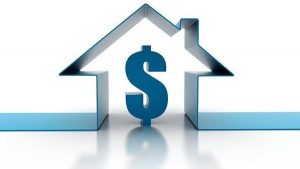Having an income property is one of the most popular ways of investing in the real estate industry. You’ve probably been looking to invest on an income property of your own. There are numerous options available including the REITs, ETFs, and even in home constructions. However, among those options, one stands true and solid among the ever-fluctuating economy and real estate market. And it’s through owning income properties yourself. Whether you aspire to be a landlord of many lands or have enough starting capital to invest in a commercial income property, here are some of the basic stuff.

Definition of Income Property
The phrase income property refers to buildings or lands that generate money over time, most commonly through rental. The most common division of the income properties are the residential and the commercial. Which one is right for you?
Residential income property
Just as the name suggests, the residential income property is intended for rent for tenants. In this market, just like at any other business, defining your target “audience” or demographics would give you much more of an edge from your competition, as you are not targeting your tenants blindly. It all depends a lot on the location of your residential property, the surrounding facilities and commercial establishments, as well as things like schools or colleges.
Many residential income properties capitalize on their locations that are close to the nearest college or public school. The demographics of your biggest target market would also determine things such as the rental prices for your properties.
Commercial income property
Often owned by big corporations or simply families of old money, the income properties that fall into the commercial category makes the biggest returns among the two types of income properties. However, some individuals do manage to get good deals for properties that are intended for commercial income properties. This could be achieved through being able to see a potential of a property, land, and a location.
It requires long-term commitment
It seemed easy and simple enough. You have the property, you rent it out to tenants, then you get your money every month. Except it’s not as clear-cut as it may look, not at all. Depending on your properties and the state of the market, a lot of rentals can make return investment after a decade or so of renting them to tenants. You’d also need to pay mortgage and interests.
The process may take years and years. It may not seem very “profitable” in the residential properties sector once you’re actually in the process of making income from your properties. However, note that it will yield a return. Maybe later rather than sooner. But it’s still a very solid method to invest. People will always need a place to live. And if the economy and the infrastructure in your area grows, then more potentials to you. Both commercial and residential real estate business benefit from the growth of the overall economy. So keep on maintaining your properties in good conditions, be patient, be persistent, and it will yield a worthwhile investment.

